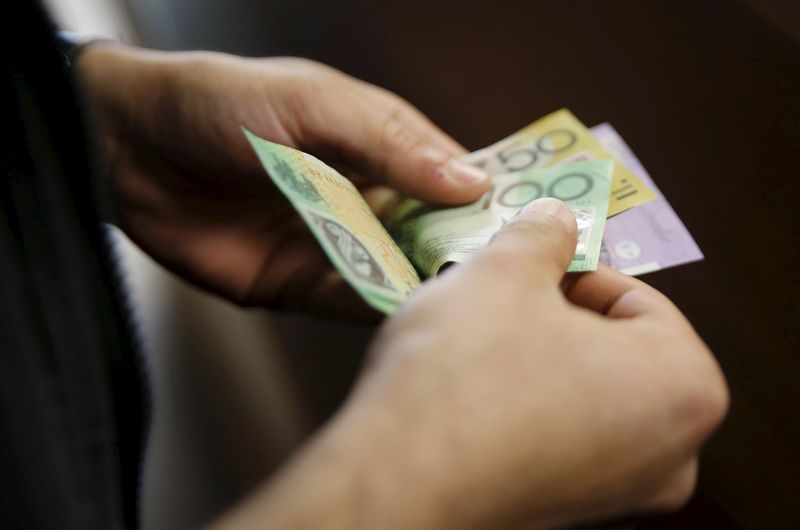By Wayne Cole and Rebecca Howard
SYDNEY/WELLINGTON, July 15 (Reuters) - The Australian dollar surged to a 10-week high on Friday after a swath of Chinese economic data beat expectations, helping cement the Aussie's best weekly performance on the yen since early 2009.
China's economy grew 6.7 percent in the second quarter from a year earlier, soothing worries about a slowdown, while retail sales and industrial production all topped forecasts. Australian dollar AUD=D4 leaped to $0.7670, from $0.7612 just before the China data hit dealing screens, and finally cracked stiff resistance in the $0.7650/60 zone.
It was the seventh straight week of gains, which brought the Aussie all the way from $0.7145 to as far as $0.7676.
Much of the latest rise came against the yen as speculation of further easing by the Bank of Japan prompted investors to cut long positions in the safe-haven currency.
The Aussie was all the way up at 81.41 yen AUDJPY=R having climbed a huge 7 percent for the week, the biggest gain since February 2009.
A global revival in risk appetite has benefited the Aussie given its still relatively high yields. Australian 10-year government bonds pay 1.96 percent, compared to 1.53 percent in the United States, -10 basis points in Germany and -31 basis points in Japan.
The Reserve Bank of Australia (RBA) could well cut its 1.75 percent cash rate next month if inflation data due on July 27 prove to be as soft as many analysts suspect.
Yet other central banks are also likely to be easing, including those in Britain and Japan.
The New Zealand dollar NZD=D4 did not fare so well, being down 1.7 percent for the week at $0.7186.
The kiwi had backtracked on Thursday when the Reserve Bank of New Zealand surprised by announcing it would give a brief update on its economic outlook on July 21, well before the next policy review on Aug. 11.
The update will come just a few days after New Zealand's latest inflation figures are released, which again are expected to be weak.
Investors suspected the central bank might protest at the strength of the kiwi and narrowed the odds on a rate cut in August, taking bank bill futures sharply higher for the week 0#NBB: .
"The natural conclusion the market took was that the Bank was not happy with current market conditions," said BNZ FX Strategist Jason Wong.
"A much higher than expected CPI figure or the RBNZ not delivering that sort of message, would send the NZD smartly back up," said Wong.
New Zealand government bond prices 0#NZTSY= fell in line with Treasuries, with yields rising as much as 4.5 basis points.
Australian government bond futures likewise edged lower. The three-year bond contract YTTc1 dipped 3 ticks to 98.460, while the 10-year contract YTCc1 lost 3.5 ticks to 97.9905. (Editing by Richard Borsuk)
